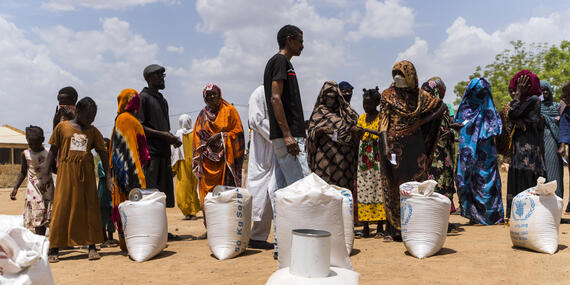As conflict between rival militaries rages on, the impacts are devastating as millions of people are being displaced and several casualties are being suffered.
According to Farhan Haq, the Deputy Spokesman for the Secretary-General, during a briefing, he revealed that the UN and its partners have strived to offer assistance to the newly displaced families in North Darfur, even though “nearly 60 per cent of displaced families still lack adequate shelter support.”
In Abu Shouk camp in El Fasher, the North Darfur capital, displaced families are facing acute shortages of food and medicine, with local sources reporting four hunger-related deaths last week, as food insecurity continues to worsen across the entire country.
It is said that in North Darfur state, notably, low cereal supplies, poor harvests, and a prolonged food deficit have severely affected food availability.
The Cholera Outbreak
This is further compounded by the fact that a health problem is stemming out bit by bit, with cholera cases continuing to rise in Tawila. As of now, it’s reported that up to 1,500 suspected and confirmed serious infections have been reported since June, with over 500 people currently receiving treatment.
While local authorities have introduced emergency measures, including market closures and a ban on public gatherings, humanitarian organizations urgently require $120 million to scale up life-saving support in Tawila over the next three months.
“This funding is essential to contain the outbreak and sustain critical services,” according to OCHA.
Meanwhile, in Port Sudan, the main entry point for humanitarian personnel and supplies, a sharp increase in heatstroke cases linked to extreme temperatures and prolonged power outages is raising concerns, as one death was recorded over the past two days.
Food crisis
In El Fasher, food prices continue to rise to alarming levels, with the Integrated Food Security Phase Classification (IPC) having already identified famine conditions in multiple areas of North Darfur and the eastern Nuba Mountains, with more locations at risk.
In May, the average cost of the local food basket in El Fasher was more than six times the national average, as the city recorded the highest prices for nearly all essential items among assessed localities.
An IPC alert earlier this month noted that Sudan’s food security and nutrition situation is set to further deteriorate over the lean season from July to October, notably in areas of active conflict with limited access and experiencing high levels of displacement.

